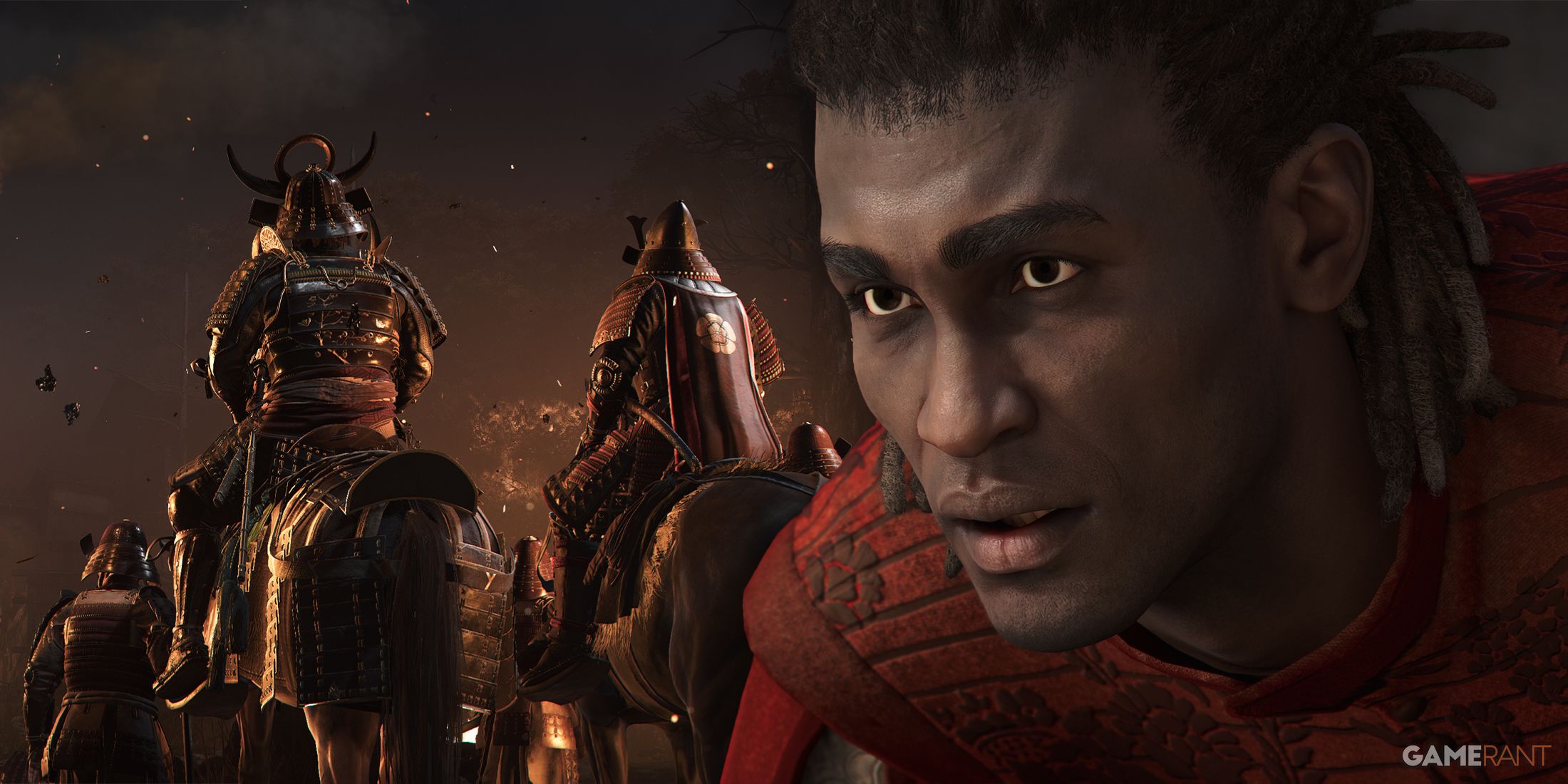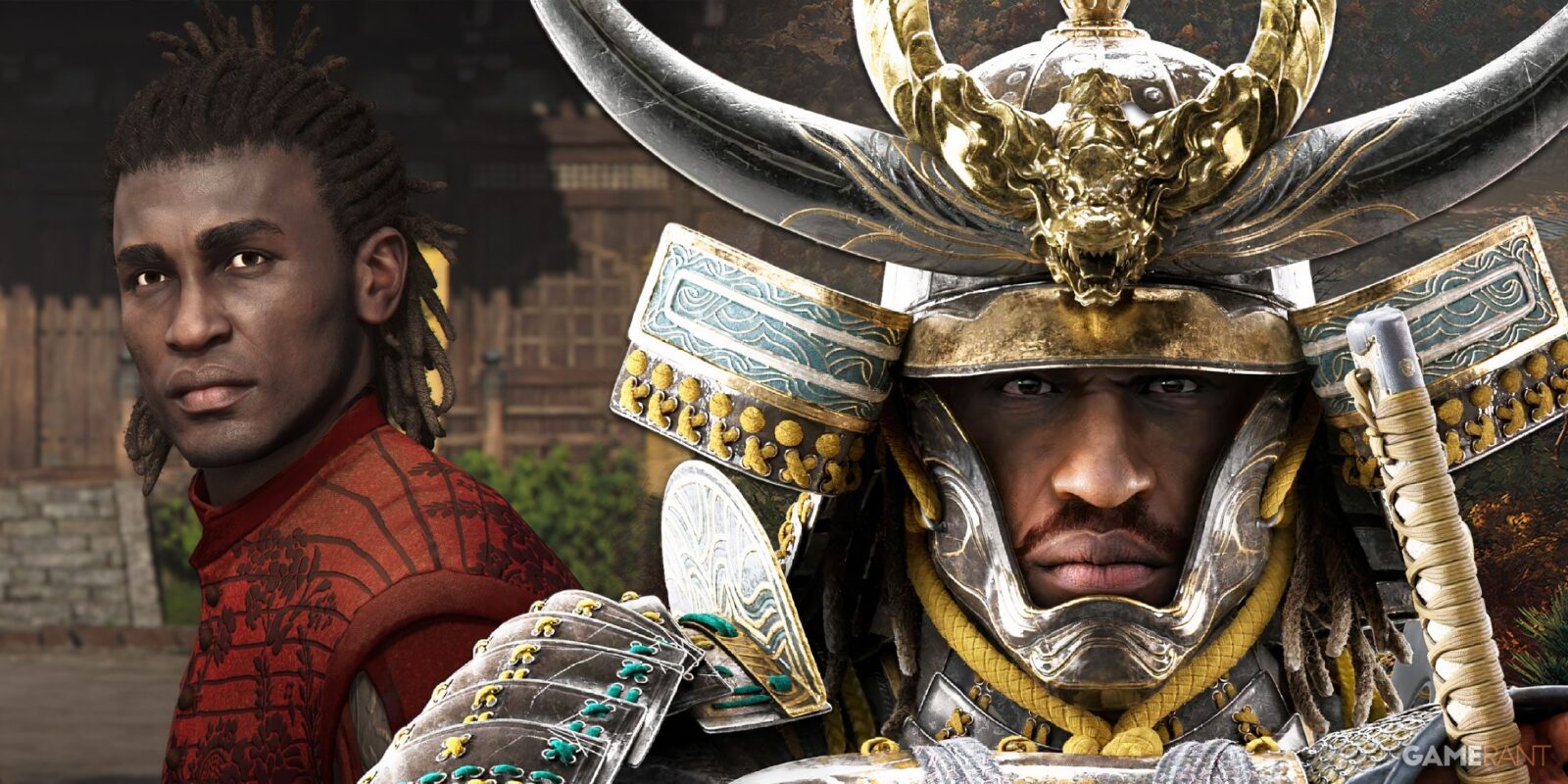Summary
- Assassin’s Creed Shadows introduces dual protagonists, Naoe and Yasuke, with distinct playstyles and personalities.
- Yasuke’s name change in the game reflects real historical practices of cultural assimilation in Japan’s Sengoku period.
- The transformation of Yasuke’s character from Diogo to a respected samurai deepens his character arc in the game.
For the first time since Assassin’s Creed Syndicate‘s Frye twins took the stage as the first dual protagonists in the series, Assassin’s Creed Shadows introduces two brand-new protagonists to the fray, Naoe and Yasuke. What is so unique about Assassin’s Creed Shadows‘ dual protagonists is how distinct they are in playstyle and personality, with Naoe being more of a cunning, stealthy assassin, and Yasuke being a gentle, noble, and brutal warrior. Apart from how they have been designed for Assassin’s Creed Shadows‘ gameplay, both Naoe and Yasuke are as tied to history as they can be in order to reflect an accurate representation of the roles and cultural practices of the Sengoku period.
Yasuke’s story in Assassin’s Creed Shadows, in particular, exhibits one of the most significant cultural practices of that time, when his name is changed from Diogo to Yasuke. This name change isn’t just for storytelling purposes or even for the sole purpose of deepening Yasuke’s character arc, however, as it was actually a common practice in Japan during the 16th century, and it has much more meaning than simply giving Diogo a different name. While it does add depth to his character arc, Yasuke’s name change is ultimately rooted in the cultural assimilation practices of Japan’s Sengoku period.

Related
How Assassin’s Creed Shadows Explores the Honor of a Samurai
Through its contrasting dual protagonists and emotionally charged narrative, Assassin’s Creed Shadows does a thorough examination of samurai honor.
The Significance of Yasuke’s Name Change in Assassin’s Creed Shadows
Yasuke’s Name Change Is Rooted in the Cultural Assimilation Practices of 16th-Century Japan
In Assassin’s Creed Shadows, Yasuke undergoes a significant transformation during the story, beginning his journey as a bodyguard named “Diogo” before adopting the name “Yasuke.” As it turns out, this name change finds its roots in the historical accounts of Yasuke, an African who arrived in Japan in 1579 with Jesuit missionary Alessandro Valignano. As shown during Assassin’s Creed Shadows‘ prologue, Diogo’s physical stature, demeanor, and prowess ultimately capture the attention of the powerful warlord Oda Nobunaga, who eventually takes Diogo into his service and gives him the name “Yasuke.”
While it does add depth to his character arc, Yasuke’s name change is ultimately rooted in the cultural assimilation practices of Japan’s Sengoku period.
It has been documented that Oda Nobunaga did indeed rename Diogo as Yasuke, allowing Assassin’s Creed Shadows‘ story and character development to more closely align with real history. However, the reasoning behind Nobunaga granting Diogo a new name has to do with the cultural assimilation practices of the time. As an African, Diogo’s name change is important as it symbolizes Yasuke’s integration into Japanese culture and his acceptance into the samurai class. This is something that was not only done for individuals of other races but also for warlords or samurai who switched allegiances or were absorbed into new domains.
Yasuke’s Name Change Adds Depth to His Character Arc
Yasuke’s name change in Assassin’s Creed Shadows doesn’t just honor Japanese history though, as it also deepens Yasuke’s character arc. By showing Yasuke’s transition from Diogo to Yasuke, Assassin’s Creed Shadows shows his journey from being an outsider to a respected warrior within Odu Nobunaga’s inner circle. Ultimately, this character evolution serves to increase players’ understanding of the challenges and acceptance Yasuke likely faced during that time in real-world history.
By incorporating Yasuke’s name change into both its narrative and the history of the Sengoku period, Assassin’s Creed Shadows pays homage to feudal Japan and adds the weight of real cultural significance to Yasuke’s character arc. His journey from Diogo to a trusted samurai under Odu Nobunaga is not only a personal transformation but also a reflection of a society undergoing significant changes, where even a person’s identity could be redefined through loyalty, strength, and respect.

- Released
-
March 20, 2025
- ESRB
-
Mature 17+ // Blood and Gore, Intense Violence, Language










Leave a Reply